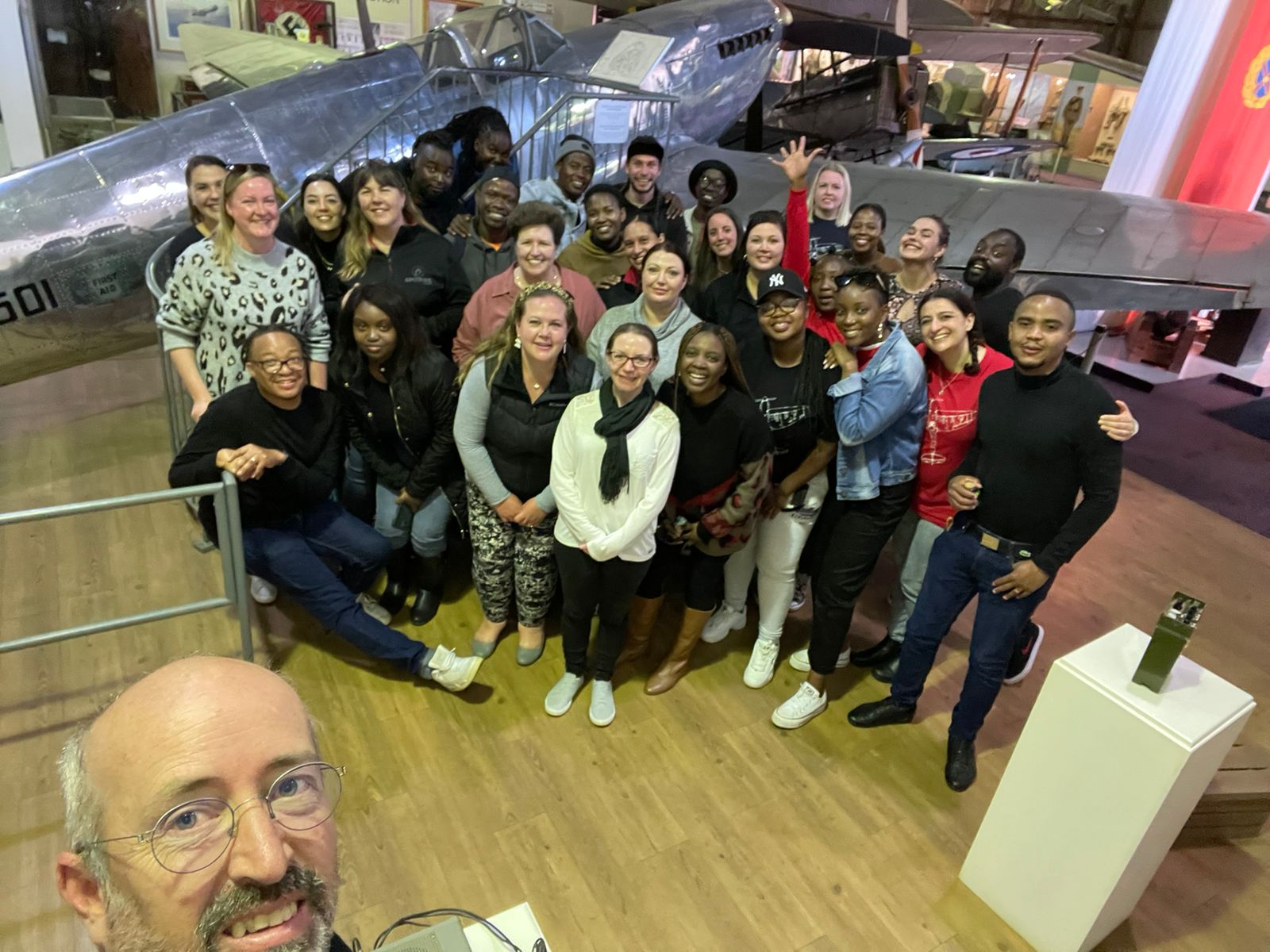Why Spitfire Inbound chose Teamwork to fuel their HubSpot Diamond agency
/f/99519/4608x3072/832051ae92/spitfire-inbound)
“As an agency, our lifeblood is orange.”
It’s probably not the first quote you’d expect to hear about an inbound marketing agency, but for Spitfire Inbound, they live and breathe HubSpot and its can’t-miss orange logo.
But HubSpot isn’t the only tool the agency prides itself on knowing backwards and forwards. As a team of more than 40 that juggles multiple clients and projects, Spitfire Inbound relies solely on Teamwork for its day-to-day work management needs.
Founded in Johannesburg, South Africa in 2016, Spitfire Inbound serves a wide array of both one-off and retainer clients in industries ranging from manufacturing to logistics. The agency was founded in 2016 with the goal of having inbound marketing, sales, and services be at the center of everything they do.
For Alison Leishman, the agency’s Strategic Director, and Mel Quitowich, the agency’s Digital Project Manager, that singular focus wouldn’t be as easy to achieve without Teamwork. “For every single piece of work that we do, we open up a Teamwork project,” they said. Currently, the agency has nearly 200 projects they’re working on within Teamwork, helping them manage everything from tracking time and task allocation to keeping budgets in scope.
As Spitfire Inbound grew, they spent time revamping the project structures and task list templates to cater to their growth, as well as based on their insights through using Teamwork. Now, whenever a new team member onboards, they get walked through a crash course in Teamwork. “Obviously every human is different in how they learn, but [Teamwork] is really intuitive and we’ve never had people struggle to use it,” she said.
Once a new team member has finished onboarding, team leaders works alongside them to keep all of their work within Teamwork. “For us, if it’s not in Teamwork, it doesn’t exist,” Alison said.
“I find that if you scribble something down on a piece of paper or in another tool, it inevitably gets lost. So we encourage everyone to keep their work in Teamwork, allocate responsibilities, and add due dates so it’s always there.”
"For us, if it's not in Teamwork, it doesn't exist."

The power of using Teamwork and HubSpot together
As a HubSpot Diamond Partner, the team at Spitfire Inbound works with clients to implement HubSpot for inbound marketing and sales services, performing day-to-day management of HubSpot portals for their users.
If that sounds like complex, detailed work, it is—which is why Spitfire Inbound initially knew they needed a better solution to manage their client work. After a few years of using Basecamp and WorkflowMax, they made the switch to Teamwork in 2019. “It really came down to the ease of use and the ability to have everything together in one space,” Alison said. “It was about being able to track time, manage projects, tasks, and budgets in one software instead of a few different ones.”
Regardless of their role, everyone at Spitfire Inbound uses Teamwork as part of their job. “HubSpot is the single source of truth for the customer, right? So for us, Teamwork is the single source of truth for anything project-related,” she explained.
As an agency that’s hyper-focused on HubSpot, it’s no surprise that Spitfire Inbound is a big fan of the Teamwork’s HubSpot Automation. “I nearly started weeping when I saw it was getting introduced,” she said. Although she had been using Zapier as a workaround, it was causing her delays of up to 30 minutes between the time a deal reached a certain stage and a project was created in Teamwork. “When you’re in a fast-paced sales environment and you can’t start logging your time against it, that’s a huge amount of time wasted,” she said.
Now, with the Hubspot Automation, the team doesn't have to worry about creating manual processes or wait for the magic to happen. “I like using it because it’s easy to create a project from a deal straight from HubSpot and have it feed into Teamwork.”

Staying on schedule with time tracking
From capacity planning to profitability reports, Mel and her team take advantage of numerous Teamwork features to stay on top of their client work. On a typical day (as much as there is such a thing in the agency world), Mel goes straight to the “My Work” section to see when her deadlines are and how her overall work is tracking. “I literally just hop into Teamwork and say, ‘Okay, now I know that I need to do this or that,’ and it helps me plan out my entire day,” she said.
When it comes to time tracking—the bread and butter of almost any agency—Alison and her team use it for both billable and non-billable time. “We really try to make it as easy as possible, because we know time tracking isn’t everyone’s favorite activity at the end of the day,” she said. As part of the time-tracking process, Alison tries to motivate her team to log time as they go to avoid any backup. “The last thing you want to worry about is coming to the end of a month and saying, ‘What did I work on three weeks ago?’”
Setting project time budgets also helps the team track their overall time against budgets, helping them deliver work on time and within scope for their clients. “In some ways, [time tracking] is the most integral part of our business,” Alison said. “And I think that’s how it is for many agencies because it’s a human, time-based service that we give. Teamwork does a lot to make it as easy as possible for every user.”

All the things to love about running an agency on Teamwork
What does it take to keep an agency’s day-to-day operations running smoothly? As Digital Project Manager, Mel relies on several Teamwork tools to keep her work on track, from project health reports (“absolutely awesome”) to risk registers (“super important for my work”). But for Mel, nothing tops task list templates. “They provide a great framework for any set activities we need to do,” she said. “They make it easy for anyone to set up a project, then hand it and all of its various components over as needed. I just really, really, really love them.”
Spitfire Inbound creates different sets of task list templates depending on the deliverable. For example, they have a website-specific task list template, one for implementation retainers, and another specifically for onboarding. “If we’re working on something completely new and repeating it by the third time, we know it’s time to create a template for it,” Alison said. She estimates the agency currently uses more than 90 different task list templates.
From there, Alison runs task list reports to see how much time the team spends on specific sections or areas. “For me, it’s a great way to check for efficiency and how we can improve our productivity overall,” she said.
Alison also cites the options to have multiple views—from list to board to table—as a huge win for their clients. “It gives us the ability to run status meetings directly out of Teamwork, which is the format preferred by our customers,” she said.
"Everything works together to make my life so easy."
As much as she loves certain capabilities like time tracking, reporting, and automations, for Mel, Teamwork is more than just the sum of its parts. "Everything works together to make my life so easy, so I don’t have to constantly be thinking where something lives or where to find it,” she said. “That’s the biggest thing for me, the ease of use. Teamwork makes our work as seamless as possible.”
Get started with Teamwork.com
Start working together beautifully. See how Teamwork.com can help your team with our 30-day free trial.

/f/99519/5184x3456/8838553efd/the-bigger-boat)
